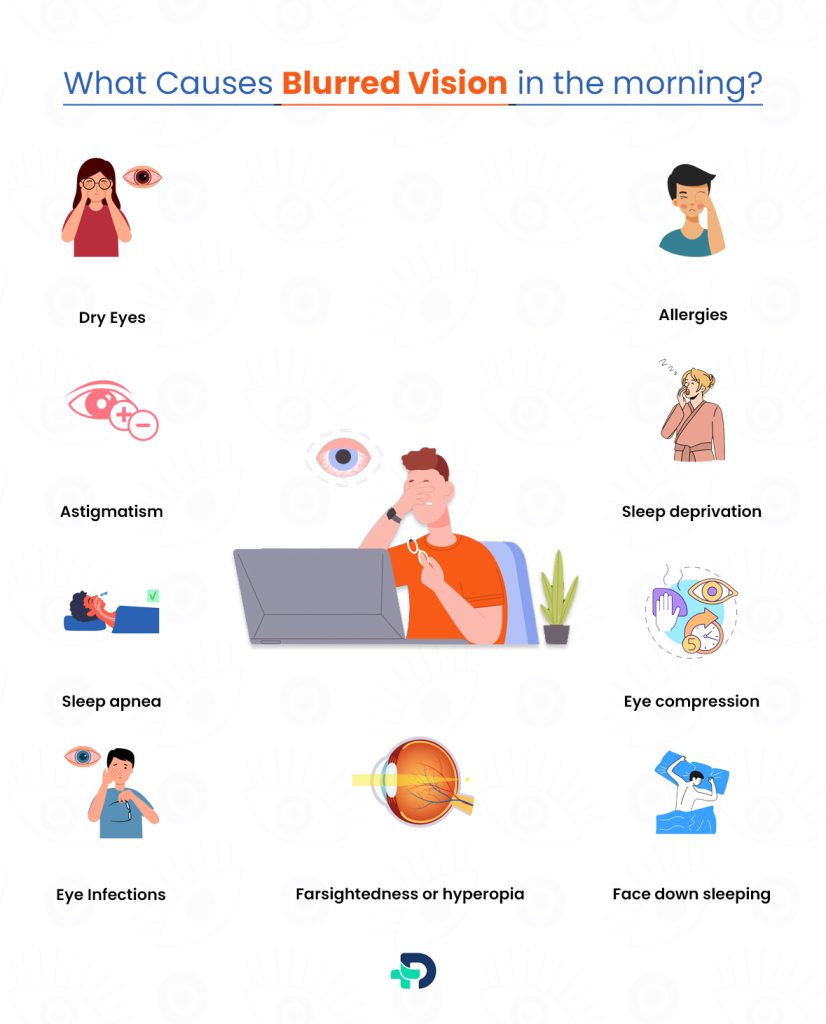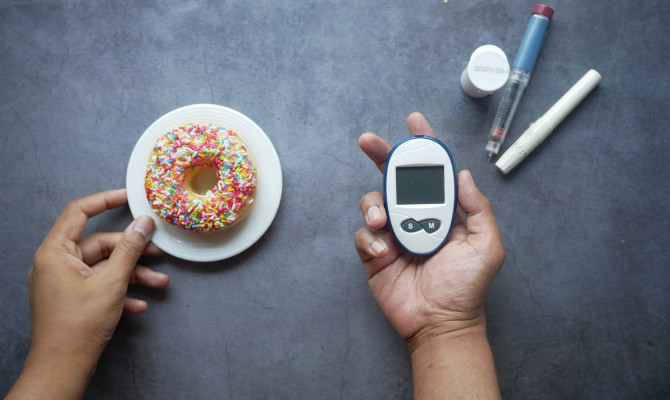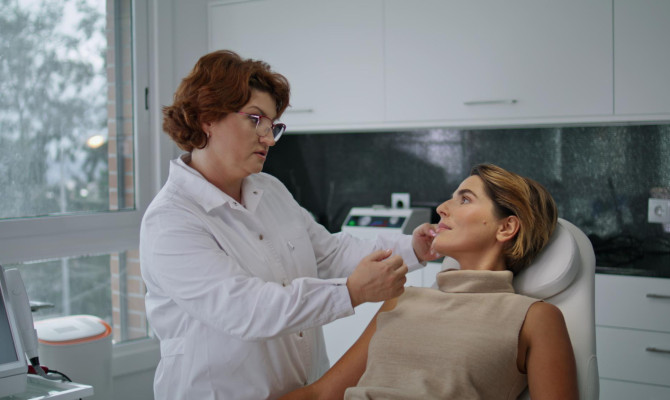Blurry Eyes In The Morning: Causes & Management

- Eyes
- 12 Oct 2023
Introduction
Blurry Eyes
Have you ever woken up in the morning, rubbed your eyes, and found that your vision remains blurry? If so, you are not alone. Many of us have experienced the phenomenon of morning blurry eyes, and it can be a perplexing and uncomfortable way to start the day. While it is often a temporary inconvenience, it is essential to understand the underlying causes and, more importantly, how to address them.

In this article, we will explore the world of morning blurry vision. We will explore the various factors that can lead to this visual disruption, from common culprits like dry eyes and allergies to less-known issues such as sleep-related factors and eye infections. Understanding the root causes is the first step in finding practical solutions to regain clear vision upon waking.
Causes

What Causes Blurred Vision in the morning?
- Dry eyes
- Allergies
- Refractive errors
- Sleep-related factors
- Eye infections
Waking up with blurry vision can be attributed to several factors, each with its characteristics and solutions. Here are the most common ones included:
Dry Eyes:
- They develop when tears don’t flow from your eyes enough or when they dry up too rapidly. Vision blurring might result from this improper lubrication, especially when first waking up.
- Age, environmental circumstances, and specific drugs are just a few of the causes. Maintaining good vision in the morning requires an understanding of the causes of dry eyes and effective management. 1 Causes | Researched based study from National Institutes of Health
Allergies:
Allergies can significantly contribute to morning blurry Eyes.
Seasonal allergies
- It is also known as hay fever or allergic rhinitis, triggered by prevalent allergens during specific times of the year. Tree, grass, and weed pollen are typical seasonal allergens. During the spring, summer, or fall, pollen levels can soar.
- Exposure to high levels of it, especially during sleep with windows open, can lead to allergic reactions. The inflammatory response triggered by seasonal allergies can affect the surface of your eyes, and the quality of your tears results in morning blurriness.
- Eye allergy symptoms include itching, watery eyes, redness, burning or stinging sensation, swelling of the eyelids or areas around the eyes, blurry vision. 6 Causes | Researched based study from National Institutes of Health
Refractive Errors:
Conditions that can impact how light is focused on the retina result in blurred vision. When you first open your eyes in the morning, these mistakes can be more obvious.
Myopia, often known as nearsightedness
- It is a condition in which separate objects appear blurry yet close objects can be seen well. Visuals may experience pronounced morning blurriness when focusing on distant objects upon waking.
Farsightedness or hyperopia
- It is where distant objects can be seen more clearly than closed objects. People may need help focusing on things up close, which can affect morning tasks like reading or checking your phone.
Astigmatism
- The disease known as astigmatism results in distorted and blurred vision at all distances because the cornea or lens of the eyes has an uneven shape. 2 Causes | Researched based study from National Institutes of Health
Corrective measures like glasses, contact lenses, and active surgery can significantly improve it for those with refractive issues.
Sleep-Related Factors:
- Your sleep quality and habits can play a role in morning blurry Eyes. Sleep deprivation, improper sleep positions, and even sleep apnea can impact your eye health and vision upon waking. Understanding the connection between sleep and eye health can help you adjust to ensure a more precise start to your day.
The quality of your sleep and various sleep-related factors can significantly impact the condition of your eyes and your morning vision.
Sleep deprivation
It occurs when you consistently do not get enough sleep. Your eyes as well as your general health can suffer from not getting enough restorative sleep. Here is how sleep deprivation can contribute to morning vision problems:
- Eye fatigue
- Dry eyes
- Difficulty focusing
- Sleep positions
Your sleeping posture has an impact on how well you sleep and, consequently, how well you see in the morning.
Face down sleeping
- Pillow can increase pressure on your eyes, potentially leading to temporary blurry vision or redness upon waking.
Eye compression
- Sleeping in a way that inadvertently processes on or compressors in one or both eyes can cause discomfort and visual disturbances in the morning.
Sleep apnea
- It is a sleeping condition marked by irregular breathing while you sleep. While it primarily affects your breathing, it can also impact your eyes and morning vision. 4 Causes | Researched based study from National Institutes of Health
Eye Infections:
- Conjunctivitis, also known as “pink eye,” is an infection that can cause redness, discharge, and blurred vision. Viruses, bacteria, or allergens can cause these. Prompt identifications and treatment are crucial to prevent the infection from worsening and affecting your eyesight. 3 Causes | Researched based study from National Institutes of Health
Symptoms
Symptoms of Blurry Eyes
Persistent dryness
- The hallmark symptom is a continuous dry or gritty feeling in the eyes. this sensation can be particularly pronounced upon waking in the morning.
Burning sensation
- You may experience a burning or stinging sensation in your eyes, making them feel irritated and uncomfortable.
Excessive tearing
- Contrarily, dry eyes can cause excessive crying as your eyes work to make up for the inadequate lubrication. This can result in watery eyes that still feel dry.
Blurry vision
- Blurred vision, especially when first opening your eyes in the morning, can be a symptom of dry eyes. The lack of a stable tear film can cause light to scatter irregularly, affecting your vision clarity.
Sensitivity to light
- It can cause photophobia, which causes your eyes to become light-sensitive. Bright lights, sunlight, or even can be exceptionally bothersome.
Redness
- Dry eyes can cause redness in the whites of your eyes, making them appear blurred. 1 Symptoms | Researched based study from National Institutes of Health
Risk Factors
Risk Factors for Blurry Eyes
Aging
- Dry eye symptoms tend to increase with age, with individuals over 50 being more prone.
Gender
- Women are more likely than men to develop dry eyes mainly due to hormonal changes associated with pregnancy, menopause, and the use of specific birth control methods.
Environmental factors
- Dry and windy environments and exposure to air conditioning and heating systems can exaggerate the symptoms.
Screen time
- Excessive use of digital screens such as computers and smartphones can reduce blink rates leading to it.
Contact lens wear
- Long-term use of contact lenses, especially if not properly cleaned and maintained, can contribute to it.
Certain medications
- Medications such as antihistamines distance and certain antidepressants can reduce tear production and version dry eyes.
Medical conditions
- Conditions like autoimmune diseases. Diabetes and thyroid disorders can increase the risk.
Eyelid problems
- Conditions that affect the eyelids, like blepharitis or meibomian gland dysfunction can interfere with the production and distribution of tears.
Home Remedies
Home Remedies for Blurry Eyes
How can I fix my blurry vision naturally?
i) Hydration & Nutrition:
Stay hydrated
- Dehydration can make dry eye symptoms worse or help you keep hydrated all day. To keep the eye’s moisture level high, drink enough water.
Fatty acids with omega 3
- Include foods high in Omega-3 fatty acids in your diet, such as salmon, flax seeds, and walnuts. These can help promote healthy tear production and reduce dryness.
Eye friendly nutrients
- Consume a balanced diet rich in vitamins and minerals that support eye health, including vitamin A, Vitamin C, vitamin E, zinc, and antioxidants found in fruits and vegetables.
ii) Eye Exercises:
Blink regularly
- During long periods of screen time are focused activities make a conscious effort to blink more frequently. Keeping the eyes wet and distributing tears evenly requires blinking.
- Gently cup your palms over your closed eyes after rubbing your hands together to create heat without exerting force. This relaxation technique can soothe tired eyes.
Focus shifting
- Periodically, it will shift your focus from a nearby object to a distant one to exercise your eye muscles and reduce strain. 5 Home Remedies | Researched based study from National Institutes of Health
Complications
Complications of Blurry Eyes
When should you worry about blurry vision?
Persistent symptoms
- If morning blurriness is persisting despite self-care measures or versions over time concert and eye care specialist for a comprehensive examination.
Severe discomfort
- If you experience severe eye pain, sudden vision changes or any other alarming symptoms, seek medical attention.
Underlying conditions
- If you have underlying conditions such as diabetes history of eye problems, follow up with your health care provider or eye specialist regularly to manage your eye health
FAQs
Frequently Asked Questions About Blurry Eyes
Q. Can blurry vision go away?
- The underlying reason will determine if hazy vision may be resolved. It frequently manifests as a symptom rather than a disease, and the cause determines how quickly it goes away.
- Sometimes, it may be temporary and go away on its own. Blurry vision is linked to chronic conditions like dry eye syndrome, diabetic retinopathy, or glaucoma. Management and treatment is essential.
Q. Can dehydration cause blurry vision?
- Yes, it can indeed cause blurry vision. Your body lacks the fluids it needs to perform many physical functions, including those related to your eyes, when you are dehydrated.
Any feedback on this article?
 This Articles content was accurate
This Articles content was accurate Very Informative Article
Very Informative Article I have a question or a comment
I have a question or a comment
 This article contains inaccurate content
This article contains inaccurate content This article was not helpful
This article was not helpful I have a question or a comment
I have a question or a comment
We appreciate your helpful feedback!
Checkout our social pages
References
-
National Institutes of Health
Causes | Symptoms
-
National Institutes of Health
Causes
-
National Institutes of Health
Causes
-
National Institutes of Health
Causes
-
National Institutes of Health
Home Remedies
-
National Institutes of Health
Causes



































